Downloads
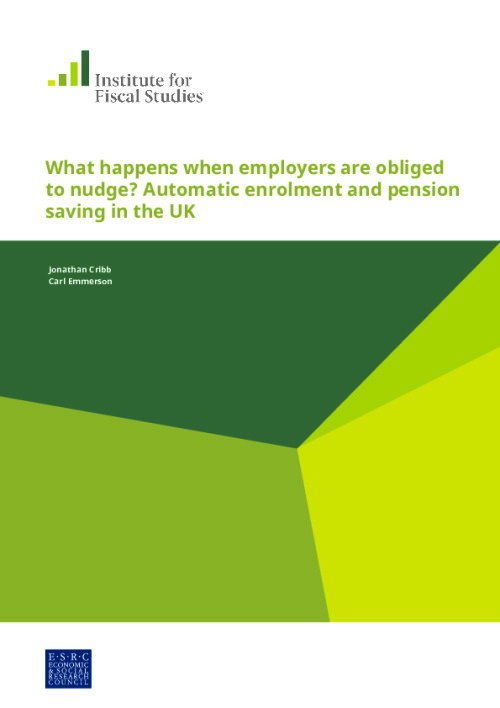
auto_enrolment_1116.pdf
PDF | 178.77 KB
Concerns about undersaving for retirement have led to policymakers implementing reforms aimed at boosting saving. One such policy is 'automatic enrolment' – where rather than having to choose to contribute to a pension, employees have actively to choose not to save in one. Since October 2012, the UK has been in the process of implementing the first-ever national roll-out of such a policy. This paper exploits the gradual roll-out of this obligation for employers to enrol their employees into a pension to estimate its effect on how much is saved in workplace pensions for private sector employees.
Figure ES2. Workplace pension membership rates among private sector employees eligible for automatic enrolment, by employer size in 2012
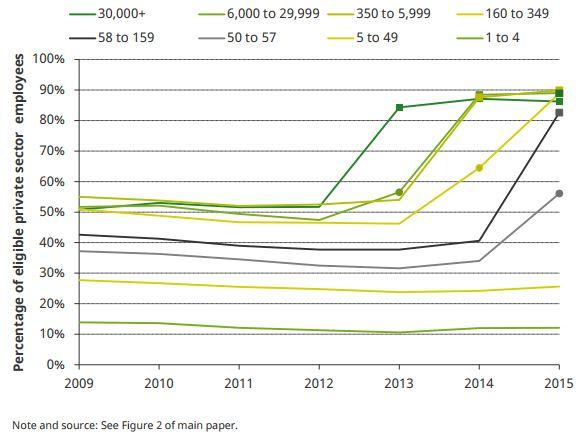
Authors

Deputy Director
Carl, a Deputy Director, is an editor of the IFS Green Budget, is expert on the UK pension system and sits on the Social Security Advisory Committee.

Associate Director
Jonathan is an Associate Director and Head of Retirement, Savings and Ageing sector, focusing on pensions, savings and later-life economic activity.
Report details
- ISBN
- 978-1-911102-26-7
- Publisher
- The IFS
Suggested citation
Cribb, J and Emmerson, C. (2016). What happens when employers are obliged to nudge? Automatic enrolment and pension saving in the UK. London: The IFS. Available at: https://ifs.org.uk/publications/what-happens-when-employers-are-obliged-nudge-automatic-enrolment-and-pension-saving-0 (accessed: 2 May 2024).
More from IFS
Understand this issue
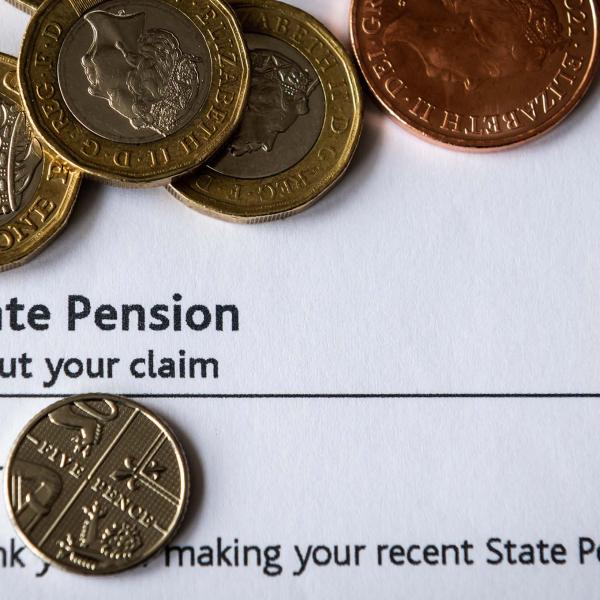
The future of the state pension
21 December 2023

Should we abolish inheritance tax?
7 June 2023
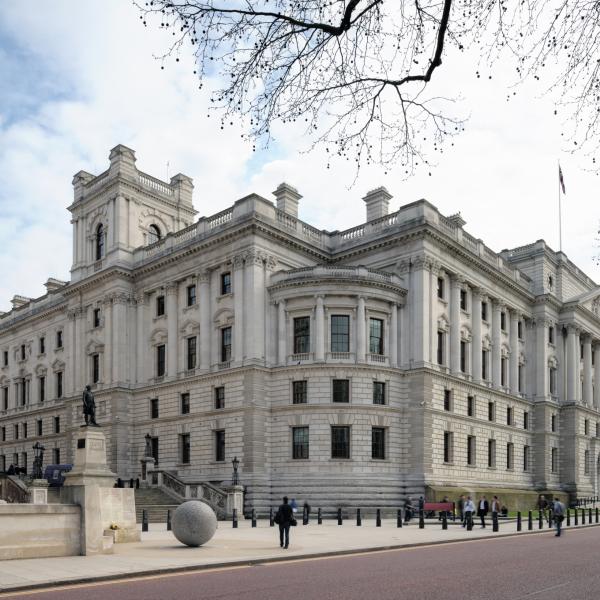
Taxes could be cut within broader reforms
2 November 2023
Policy analysis

Help onto the housing ladder: the role of intergenerational transfers
8 December 2023

Around half of first-time buyers in their 20s receive financial help to buy their home, with large consequences for their subsequent wealth accumulation
8 December 2023

Early retirement increasingly concentrated amongst the wealthy
1 November 2023
Academic research
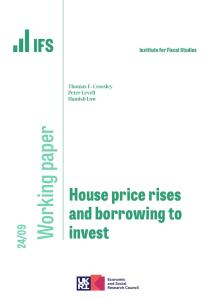
House price rises and borrowing to invest
27 March 2024
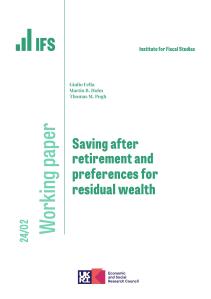
Saving after retirement and preferences for residual wealth
18 January 2024

Saving by buying ahead: stockpiling in response to lump-sum payments
2 February 2024